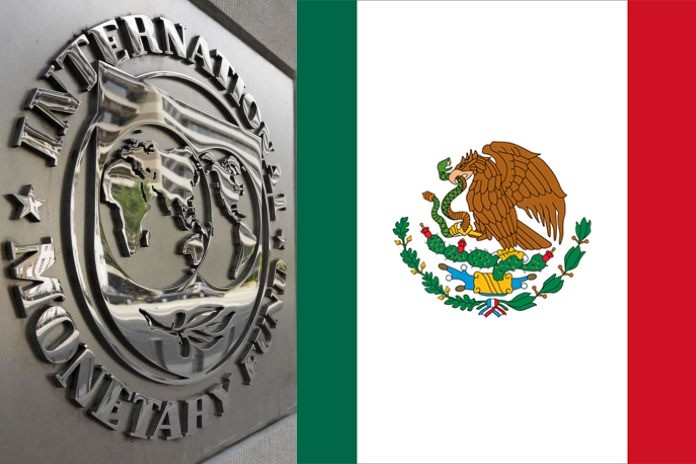MEXICO CITY, Mexico – The executive board of the International Monetary Fund (IMF) approved Friday a successor two-year arrangement for Mexico under the Flexible Credit Line (FCL) in an amount equivalent to SDR 35.6508 billion (about US$50 billion, equivalent to 400 percent of quota) and noted the cancelation by Mexico of the previous arrangement. The Mexican authorities stated their intention to treat the arrangement as precautionary.
This is Mexico’s ninth FCL arrangement. Mexico’s first FCL arrangement was approved on April 17, 2009 (see Press Release No. 09/130 ). It was renewed on March 25, 2010 (see Press Release No. 10/114 ), January 10, 2011 (see Press Release No. 11/4 ), November 30, 2012 (see Press Release No. 12/465 ), November 26, 2014 (see Press Release No. 14/543 ), May 27, 2016 (see Press Release No. 16/250 ), November 29, 2017 (see Press Release No. 17/459 ), and November 22, 2019 (see Press Release No. 19/431 ).
In recent years, Mexico has been on a path of gradually reducing access under its FCL arrangements. The arrangement approved on November 29, 2017, was for an original access amount equivalent to SDR 62.3889 billion (about US$86 billion), which, at the request of the Mexican authorities, was reduced to SDR 53.4762 billion (about US$74 billion) on November 26, 2018 (see Press Release No. 18/440 ). The arrangement approved on November 22, 2019, was for an access amount equivalent to SDR 44.5635 billion (about US$61 billion).
Following the executive board’s discussion on Mexico, Geoffrey Okamoto, first deputy managing director and acting chair, made the following statement:
“The Mexican economy is rebounding from its deepest recession in decades, spurred by strong US growth and rising vaccination rates. The authorities have successfully maintained external, financial, and fiscal stability, despite the pandemic-related challenges. Mexico’s macroeconomic policies and institutional policy frameworks remain very strong, including a flexible exchange rate regime, a credible inflation targeting framework, a fiscal responsibility law, and a well-regulated financial sector.
“Nevertheless, the Mexican economy remains exposed to external risks, including from renewed waves of the COVID-19 pandemic, as well as international financial volatility, for instance, from a rise in inflation expectations in advanced economies and a corresponding faster-than-expected normalization of their monetary policies. Such shocks could increase yields, risk premia, and capital outflows from Mexico. The new arrangement under the Flexible Credit Line will continue to play an important role in supporting the authorities’ macroeconomic strategy by providing insurance against tail risks and bolstering market confidence.
“The authorities intend to treat the arrangement as precautionary. The lower level of access is appropriate given the decline in risks compared to last year and also resumes the authorities’ pre-pandemic strategy of gradually phasing out the use of the facility. The authorities intend to reduce access further during the mid-term review, contingent on the evolution of external risks.”






